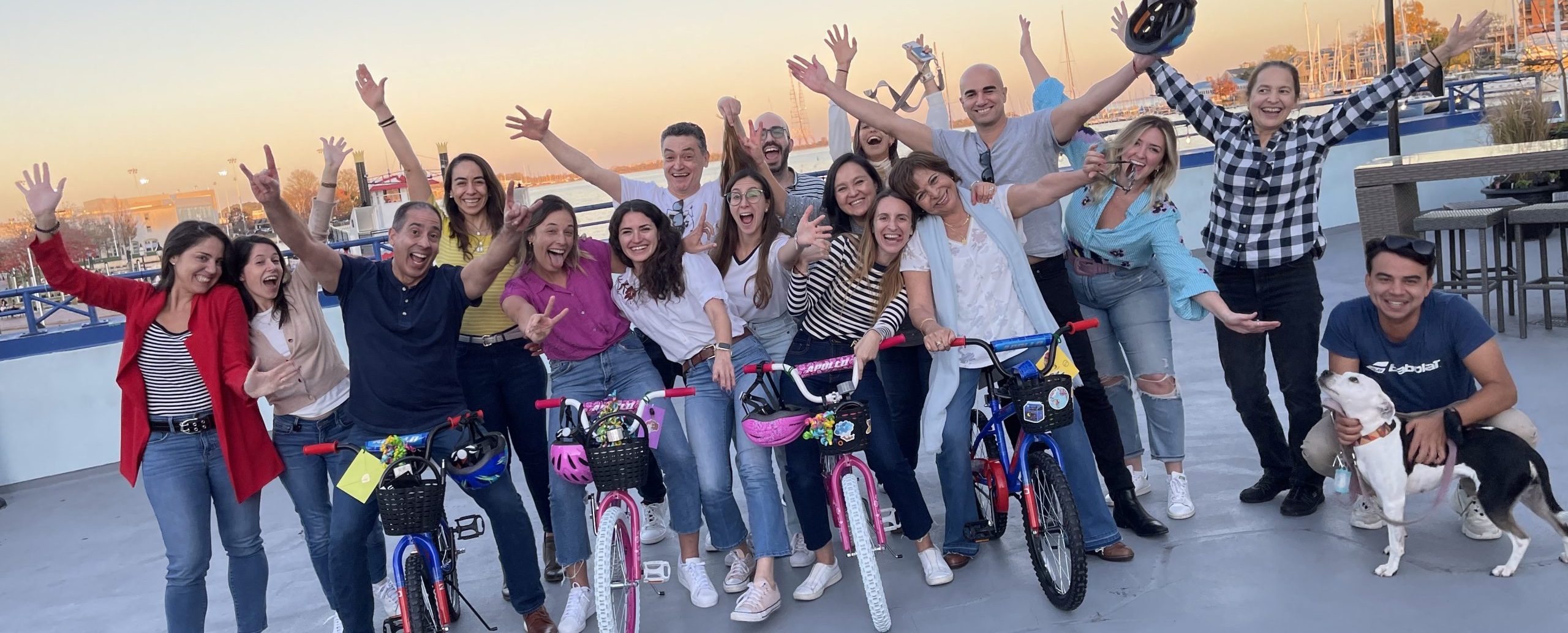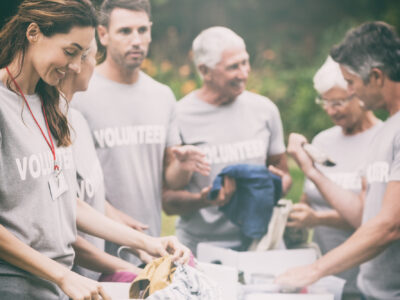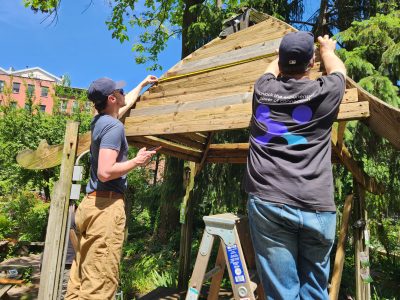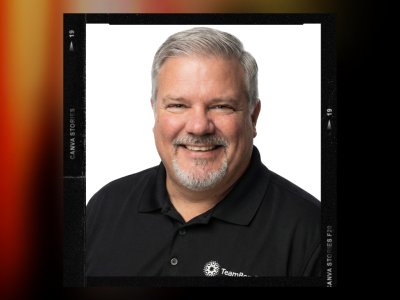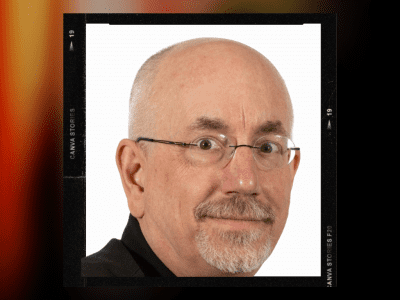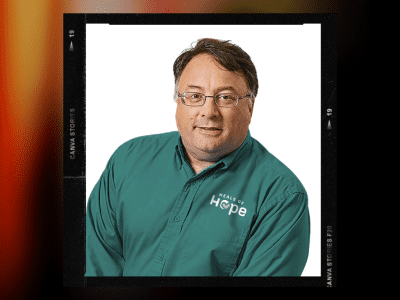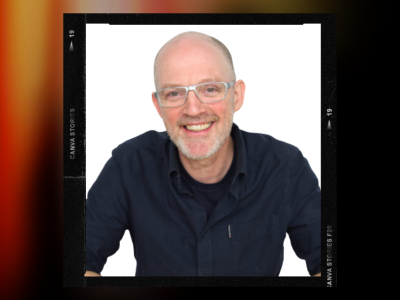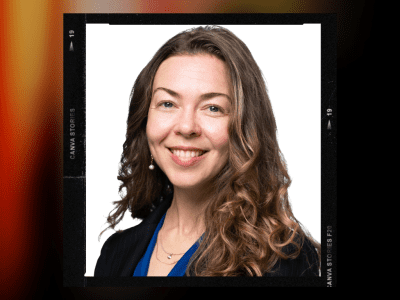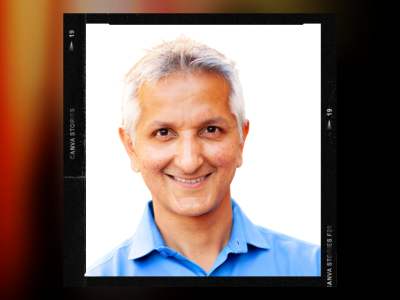STRONG TEAMS DON’T HAPPEN BY CHANCE 
That’s a Wrap!
Season 2 Finale w/ Melissa Ehlers
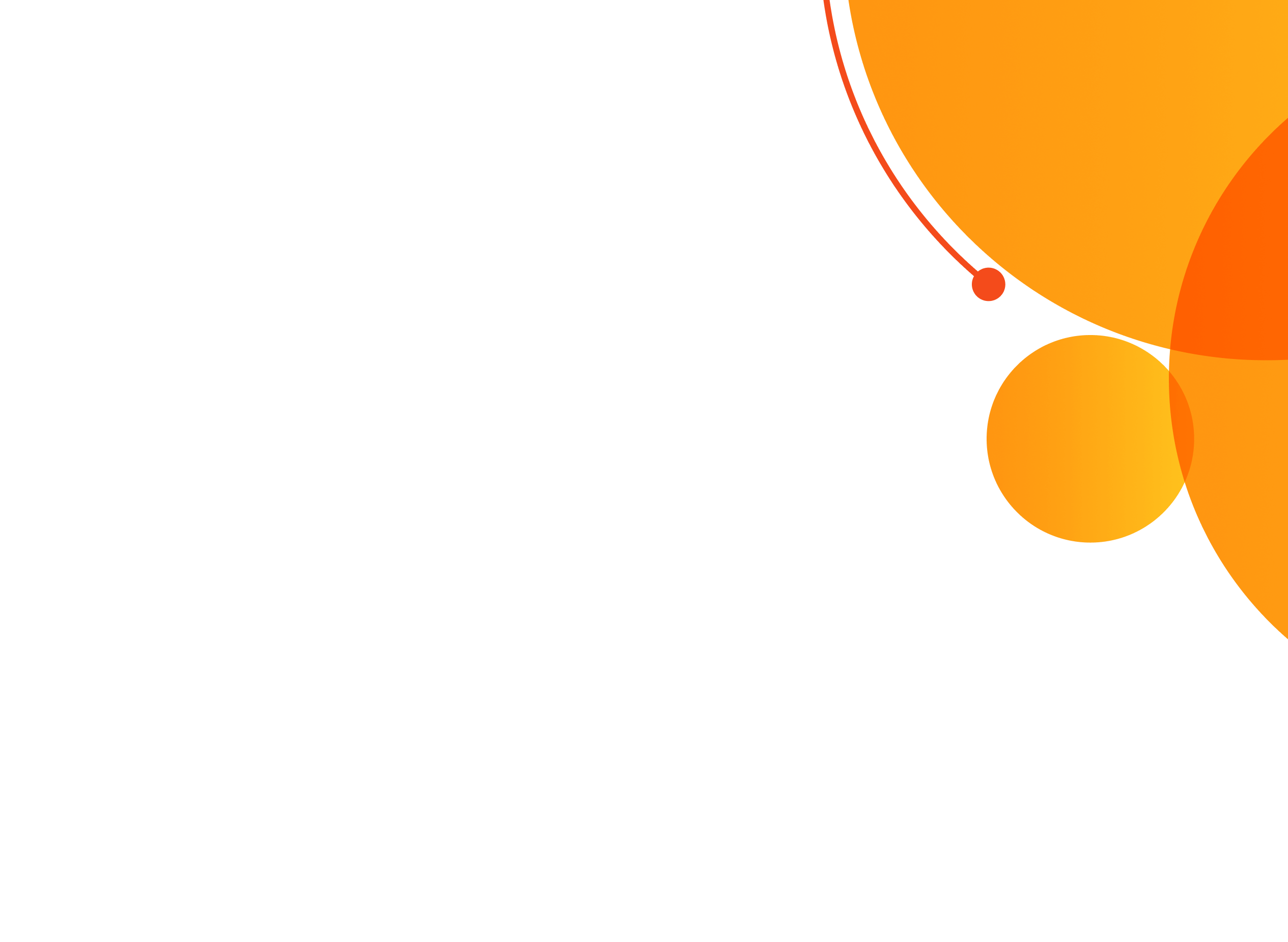
Use the buttons above to listen now.
Transcript - That’s a Wrap!
Rich: Uh, this episode of team building saves the world.
Melissa: All right. You ready?
Rich: Uh, yeah. Are you?
Melissa: Yep. Here we go. Starting.
Rich: I do this. This is I start the intro.
Melissa: I know, but I have to hit the button, so I make sure I do it right, because I’m always behind the scenes. Here we go here. It’s going to be a, it’s going to be a fun one.
Rich: Are you ready? Yes. Okay.
Hello team. It’s me, your old friend, Rich Rininsland host of team building saves the world. The show where I speak to the leaders and innovators, the team building industry from all across the globe, trying to find out what about that industry is so important, especially in the world of today. And today we’re looking back at the entirety of the last season of the.
With my number one, teammate and producer Melissa. Ehlers the first that’s sharing some love with my support as a team bonding. If you’re a team is ready to experience teamwork as a power play, then visit team bonding.com to learn more. Now team let’s wrap up another season of team building saves the world with my producer and personal Jimminy cricket, Melissa Ehlers
thanks again, Melissa. For. Small group of people to hide under my desk, just to applaud folks.
Melissa: Very welcome. I know it was very important for us to have that for all of our guests.
Rich: I mean, it costs thousands of dollars just so everybody knows. Yeah. And I have to feed them and everything. It’s weird.
Melissa: Yeah. I’m sorry about that.
Just, just submit the receipt and we’ll get you reimbursed for that,
Rich: but let’s start off. Let’s tell everybody on the team, what we’re doing here today. Of course, this is our season final. Our wrap up for this. Where we talk about what we had just gone through for the entire past season, but let’s start off.
Let’s talk about. Tell everybody what it is that you do. And, and, and, and how did this whole thing come up?
Melissa: Sure. So as you said, my name is Melissa Ehlers and I am an event coordinator for team bonding, but also the producer for team building saves the world. This is a, I would say passion project. I think that’s a good way to describe what we do.
Uh, this is, uh, this was a passion project that I had. Brought to the owner of team bonding, David Goldstein. Who’s been a guest a couple of times at this point and tried to convince them, yes, this is something that we can do. It’s something that it’s important, but the concept for it was a little bit different than what it is now.
So we may explore that other concept, but I’m very happy with where we have landed, especially this season on the podcast with who we were able to. Have conversations with an interview throughout the season,
Rich: in case anybody ever jumped in on the second season of the podcast and looked at our lovely logo that was developed for us, where it used to be in our first season team building around the world.
Now of course, team building saves the world. So where did the change come about, Melissa? Where, you know, what’s, what was the original concept versus what we’re doing?
Melissa: Sure. So our original concept was where part of the catalyst global network. And if you haven’t listened to season one, you should absolutely do go back and listen to season one.
Exactly. There we go. And it was great to really, so it started in the pandemic, it was a pandemic project. We were looking for ways to build connections and kind of. Make sure that people knew that other people were out there going through the exact same thing, regardless of location. Everybody had that isolation feeling.
So the, the purpose was to try and bring more, bring people together and bring more understanding for different, different areas of the world. So through the catalyst global network, we were able to connect. To all of these different partners. And we had some help with the home offices from catalyst global and they.
Introduce me to all these amazing people around the world and rich, and I worked all of these crazy hours for about six to six to eight weeks. of solid interviewing people at all kinds of crazy hours. We found out time zones are a real thing. And how much of a morning person that I am.
So we were able to get all of those wonderful interviews. And then for the next season, when we started doing our pre-production for the current season two, we started, um, talking about more about company culture and kind of the importance of that. So we worked with the marketing team, a team bonding to kind of develop and.
Molding. Um, we had some ideas of where we wanted the season to go, but we had no idea of the conversations that we were going to be having could, because we wanted to stay more topical and more relevant based on what was going on in the corporate world and all of those kinds of things.
Rich: So we’ve discussed many topics this season.
Uh, some we discussed multiple times in. Everything is overlapping. Everything’s dovetailing. You can’t talk about corporate culture without talking about, you know, problems in the office. And also talking about whether we want to do live virtual a hybrid, or whether we want to, you know, all of these things were all coming up throughout the entirety of the course.
Do you find that it felt to me, I should say that it felt like this season really kind of started writing itself. Once we, once we got to a certain point, where do you think that.
Melissa: I’m not really totally sure where, where that came about, but we started by introducing everyone to some of our team, my team bond day.
And that very first episode of behind the curtain, we had our two of our facilitators. We had you who is also a facilitator for team bonding. And we also had a member of our sales team there to kind of walk us through the process from start to finish. So we gave everybody kind of. A sneak peek of what happens behind the scenes at team bonding.
And then it just kind of grew from there. We talked to one of our partners from New Zealand. We talked to Stu Robertson, uh, about what it was like for him to return to live events. And then we kind of really switched gears and really started to focus on corporate culture after that. Um, I can’t remember exactly where episodes fell, but we definitely talked about the importance of people feeling comfortable.
Speaking up. In the office with AngelaLussier, there was that one. It seems like that was so long ago that we discussed that. But also it just in looking back at our season release, going back and remembering our guests,Chris Schembra, who spot spoke on gratitude and the importance of having a gratitude practice and how that can apply within the workplace.
So it kind of started to evolve from there and we ended up. So many wonderful people through the research that I do that gets the episode from a little idea that we discussed in our production meetings of, Hey, I’m finding a lot of articles on this specific topic. I really think we could craft a full episode on it.
That’s important to talk about to booking the guests, to actually having the interview.
Rich: So in your opinion, let me just ask you who is this show? I think it’s a really big, yeah, it’s a big weighty conversation, but this is a business podcast of course, talking about the business world, but is it just for those business people in your opinion?
Melissa: So I really don’t think so. And I will say that my mind has changed that. Okay, because at first, when I was trying to explain to my friends and family members kind of what the podcast is and what it’s about, I didn’t say it’s a very business podcast, talks about corporate culture, the challenges that are there, and some of the amazing things that can happen within there.
And then as the conversations went on this season, it’s really evolved into other ways that you can. Have it apply in different areas of your life and to make those different connections. One of the running themes that I have seen through this is the importance of engagement. We talk about it in terms of employee engagement, right?
It can apply in so many other areas, making sure you’re you stay connected with your friends and family, especially because there is still a global health emergency going on, but it it’s better than it was. But having those ways to engage in different ways to engage is an important thing.
Rich: And the fact that we started getting into which I was, that was very important, the entirety of the marketplace for the, for the United States, certainly if not, Where we were talking me.
I mean, when we start talking about the great resignation yes. Which was a topic that I had no concept of until it was brought up as a talking point, like two episodes beforehand, you know, to actually look because this, this is the funny, I wanted to share this with you. I was actually in a conversation with my mother is having a phone call with my 75 year old mother who she happened upon the pod.
When she was just going through other things. And she saw one of the links that I usually put out about a new episode coming. She listened to it and she called me up to actually say to me, who is this grown adult talking about these important subjects. That’s not my son, which I get that. This is not to say my mother does not expect anything of me.
She certainly, but she was used to, you know, How many years where I was nothing more than an actor who did side jobs, just to keep myself employed in my career. You’re going to, just to make sure that I could pay my bills while trying to forward my career. And now she, she turns around and yes, I’m a host.
Yes. I’m still a talking personality on a pulpit in front of a group of people. But the topics we’re talking about are very important. And it’s not, and it’s not just, well, yes, last. I thought it was very important in that it really helped remind people that this was happening around the world because not only was it a question of what’s life like there, what, when you’re, when you’re in the team building dynamic, but also what’s life like there for the pandemic now, what are you going through?
What, what do you see as a turning point, you know, for, for not only your company, but yourself and then for your. But we’ve, we’ve definitely started focusing now on really remarkable topics. And I’m actually, I can say I could not have gotten through this without you in my ear, because just to give a little more behind the scenes of what this actually looks like while you are all either seeing us on YouTube or anywhere else that we’re posting, plus, uh, listening to the podcast.
While I’m talking to the guests that we’re having. Melissa is a constant, just text message away. She’s just a little chat function away on zoom to tell me, you know, we have to get the live read, or you should follow up on this question or you might want to actually take it back to this point that he made.
And it was a lifesaver for me. So I can’t thank you enough. Just so everybody is aware. I really am nothing more than a good radio voice and a somewhat pretty face. That’s all I am. If it weren’t for the people behind the scenes like Melissa and everybody else who will get to a little bit later on, cause we want to send thanks out to everyone.
Then the show would not have been the success this year that we feel that.
Melissa: No, it truly, it truly was. And going back to those important topics, it all started with, Hey, I’ve heard a little bit about this, or I caught a new story on this specifically, the great resignation. Yeah. Um, just because there was just such a major that’s for that specific topic, just such a major cultural shift in the pandemic with people realize that.
What truly is important to them. And if their company is not meeting those needs, they’ll find one that will, and having that out there and not just that, but other topics that we crafted, uh, the multi-generational workplace. Cause another one that I didn’t realize how huge it was until we spoke to Mary.
About it as well. So taking those and like taking the time to research the topics, have meetings with our podcast team and say, Hey, I think this is something we can really do. And then you and I, me sending you like, okay, here’s all the research that I’ve done on this. Here’s a whole bunch of articles and do a brain dump essentially and give you the information.
That’s all in my head. And part of what I do is I’m outside the conversation. It’s very easy to be in the conversation and not realize how detailed things are getting and how niche it is, and not remember to ask those followup questions. So a lot, what I do, especially in these recording sessions is I sit back and I am.
Listening intently and making notes. I have so many little notepads all over my desk that go, oh, that was a good one. And then just send that private message to rich and to keep him on time and keep him on task because he is such a great conversationalist that the conversation can easily get lost. But.
What is nice as he brings it right back to the point that especially where I’ve been at him for one or two minutes, you need to do the live read you need to do the live read Hey, live read free. Now how about now? And he’ll like, find that graceful way to circle back to where we were getting to. And speaking of which it is,
Rich: I say was that you being graceful and.
Oh, why not? One more time. This season let’s step away so we can take a minute and tell everyone about a company we’re both very proud to be a part of team bonding. Dean Bonnie was founded over 20 years ago with one simple question. How can employees have a great time while fostering strong, authentic bonds between people who work?
They’ve created a catalog of innovative events using the power of play as a learning tool and tapping into the correlation of work and play from scavenger hunt to jeopardy and so much more the team bonding of activities, whether live virtual or hybrid, maximizes the impact of team building with an accent on fun.
Visit team bonding.com to schedule your event. Team bonding when you went seriously fun results. And we’re back for the season. Wrap up with Melissa Melissa team building saves the world. Did we?
Melissa: I think we’re starting conversations that can help get us to that point, especially in the industry that we are in.
We’re finding. Having these events, whether virtual in-person or a hybrid of the two, or as Bob said in returning to live events in the U S parallel events, right. Having those conversations and bringing those people together and making people aware of the importance of it, I think is a step in the right direction.
Rich: So it’s, it’s fascinating to me how every time we’re coming up with concepts, for what to talk about in the show, what the conversation should be around. I will then after we have put the show out and, you know, into the ether for the world to listen to, I will then start getting my algorithms popping up.
Other shows, talking about the same topic. And I was like, yes, there’s a part of me that realizes that’s just how those algorithms work. But there is a part of me that goes, maybe we’re grounded. Just a little bit, maybe we can
Melissa: move it. No. And a lot of the conversations that we have started, not all of them are my concepts.
No Rich and I meet with a team weekly. We’d been doing that since I w I want to say February. Of 2021. When we started crafting the season, there is a team of us and we throw out a bunch of topics and, you know, some stick and some don’t. And the only way we know if something is gonna work. It doesn’t always come out the way that I had anticipated.
And that’s not necessarily a bad thing. A lot of times it’s coming out better. Um, because of that and having those conversations with the team about what I think is important to talk about, and some of the stuff that they think is important to talk about. That’s how we’ve gotten some of these great guests, especially when we talked to, uh, Sandra Keirney about employee development and the importance of that and, and keeping employees engaged through that development process.
And as well as Steven Behr, keeping the fun in employee engagement, the gamification of employee training and things like that.
Rich: I remember. Denigrates Steven at all. But I remember us thinking that this was going to be very much a different thing that, that episode, that, that episode entirely was going to be, it’s almost like we were going back to season one and talking to someone who develops games to talk about the games that they had developed, but instead it turned around to be, no, we’re going to be talking about why it’s so important.
That, that is how, because people learn better, they retain information more. They go back and review more often when it’s a fun, dynamic thing to do
Melissa: exactly. And it’s giving them the tools to apply it to real life situations, especially like maybe in a call center environment where you have. Difficult caller when you really have to step back and remember your training and remember what you have to go through and having those is important.
And there are so many things that I definitely took away from the season, especially, um, a little bit more of the work-life balance stuff. When we talked to, uh, Rob Fletcher talking about work life balance, having that separation because there is still so many people that are still working remote and it’s, it’s hard.
I’m someone that works fully remote. Now I only go down to our offices once a month for a monthly meeting. So it’s very difficult and it’s. To have that separation of okay. Work is done, but no, I can just do that one more thing and spend that extra time 20 minutes.
Rich: You mean I’ve had to be in the office more often than you?
Yeah. You really,
Melissa: really,
Rich: really is. I went, we went back to live just to explain to everybody, we went back to a lot of live events, so I’ve been getting a lot more work, which is me on the. Driving. Yes. Putting up, uh, putting up a presentation, doing and hold event, which means I have to go into the office, pick up all of the items that I need to make that happen.
Um, drive our fantastic team bonding van. Yes. All the, all the cross, the tri-state area and yeah, but that’s, that’s hilarious to me that, that I have been there now more than you.
Melissa: You really have. I think it’s great. I love working from home. However, as we have said, many times, I do miss the daily connection to my fellow teammates, especially my fellow event managers.
We have a great time when we are working together. We are, they, we work really well together because we. We do try and practice what team bonding preaches of keeping it fun, learning through the power of play, all of those things to, you know, keep the work environment healthy and moving forward so that we’re able to give everyone what’s expected.
And in doing all of the events that we do.
Rich: Do you have any favorites, either conversations or moments from this season? Ooh, I know it’s tough. It really, really is
Melissa: so so many great ones. So if I look at my little cheat sheet to be very honest with you, of, of the episodes, Produce this past season. I mean, we’ve had, I’ve mentioned quite a few of the great guests and the great conversations, right?
However, one, one episode that was really important for me to get out there in the research that I was doing. And you and I have spoken at length about this was speaking up about toxic work environments past work and. That I have been in are, have not been great. And that’s the reason why people leave and learning the cost, not just in knowledge, but the actual bottom line to find out that when a company loses an employee, it can be up to $12,000
Rich: plus and take almost a full year before that employee is anywhere near the level that they need them.
Melissa: Exactly. And it costs the time it costs the money it costs. So having that specific converse, starting that specific conversation was one that was incredibly important to me, based on past work experience and Nicole Turner. Amazing to work with. So what I booked guests, there are several different ways I can do it.
I can do it through our network of people that we know or that David Goldstein knows, or somebody in our office is connected with. Nicole was a blind reached out. I sent her a random message on LinkedIn. After I had done research on this topic, found out she was a leader in having this conversation, send her a random message on LinkedIn saying, Hey, my name is Melissa.
I produce a podcast for team bonding. Here’s the website. I’d love to have you on the show. I did not think it was going to go anywhere. It truly did not. I was like, she’s not going to respond. She’s never going to respond. But when she did, I was thrilled and floored and having her on to have that conversation was so great.
But I mean, yes, to call her out. Great. But there were so many other good conversations. Like even learning about, uh, our perks conversation with Saul Alexa, right. And in the importance of employee retention through parks, because that’s another running theme that came because if your employees aren’t engaged, you’re not going to retain them,
Rich: which actually reminds me one of the earliest conversations you and I had about this.
Was that we didn’t want it to feel like a half an hour commercial? No, with everybody who was everybody we were talking to early on, they were people who had a product to put out there. What does that product was there teaching women how to, you know, speak up for themselves or Chris Schembra with his, with his gratification has granted.
It was so important to us that this become about the topic, not the deal, not the, you know, can you, can you go a little bit more on that? I mean, did we, where we actually fought on that at all? Or was this something that everybody could play games?
Melissa: No, I don’t think so. Once we got those first couple of episodes out there of like, Hey, this is what team bonding does.
Here’s a little bit of our behind the scenes team and kind of how we work. And here’s a partner from catalyst global network. And then we started to create. Build from there. We started to have the, after we spoke to Stu, we spoke to Coonoor Behal, Gregory Tyndale, and Eva Lewis about equity, diversity, and inclusion, which is an incredibly important conversation that I would love to explore more.
Right. If we do a season three, like I would like that to be. More of a conversation. Then we had, we, we Def we definitely kind of like itch this. I wouldn’t say we scratch. We itch the surface of it because that’s a lot larger of a conversation to go on, but that was focusing on a program that team bonding offers to help start those conversations, but it wasn’t focused on team bonding, selling that program there.
It was talking about how it can. Bring those difficult conversations into the workplace, through humor and improv, because some of those, some of the things that came up in that episode are kind of ridiculous. Especially when he, when Eva was going on about how one of the first questions, when they first did their improv show, how she asked Greg, if she could touch his hair that like have like starting those conversations and showing people.
Sometimes not necessarily how ridiculous it is, but like, it’s, it’s a funny way to get people, having those difficult conversations and then just like moving on. And especially we could, we talked about so many different things and not just employee engagement and retention, but also ways to help with that.
When we spoke to our friends at calmer. Yeah. Oh, mindfulness. Yeah. And I have the fortune to take one of their mindful, uh, six week mindfulness class and in something that’s definitely helped and grounded me because of all of the chaos that’s still going on in the world. And. Having that partnership and start to bring awareness to that is something that can help more people in the long run and thus help save the
Rich: world.
Nice. Like I put a little button on the end of it. No, I, I, anybody who is a fan of the podcast, anybody who’s followed us from episode to episode. They can see that in the beginning of the season, we were very much what, what, what was the time we were trying to stick to between like 30 minutes, 35 minutes?
Right.
Melissa: Our goal a long episode was 45 minutes, um, in panel discussions obviously, and go a little bit longer,
Rich: right? Because you want more people to have, to be able to speak freely. Yes.
Melissa: Exactly. So we, we, our goal is to aim for like that 30 to 35 minutes,
Rich: but everybody who’s been following along the show and hopefully the time just flies by for you.
Like it did for me. I was absolutely amazed when Melissa, see, what will happen is Melissa will start popping up in the chat telling me how long the episode currently is. And I’ll know, I still have three or four questions that I’m dying to ask these people because the more important the conversation, the more I want to find out about it.
And that’s the great part. I have loved the fact that this is not a Q and a, this is a conversation, please. I want to know everything you have to say. And I exist. The reason I always felt you please correct me if you think. But I felt I have always existed because I’m that person on the outside who just dipped their toe in the water when it comes to corporate life.
And then, and so I can be the one who, who, whether you are young and just starting into your career or whether you’re older and you’re thinking of changing it, or whether even just trying to understand where you exist inside of corporate culture. I’m the, I always thought I was a good voice for the one who didn’t know anything.
So that we can get in on the ground floor and then build as we go. Yes.
Melissa: Oh, God. Absolutely. I mean, you, at the, I come from sort of similar backgrounds where you are more the creator, um, you’re, you’re an actor, you’re a writer. You do all of those things, right? Yes. I have a background in the arts, but it’s a little bit different.
My background is more in stage management and producing, which is why I really enjoy being behind the scenes. I. I didn’t really know much about corporate culture until I started working at team bonding because I had mostly done non-profit work. So I worked with nonprofits running, running different programs.
So I knew about the nonprofit culture and, but I didn’t know much about the, the real corporate culture that we have been discussing this past season.
Rich: Maybe we’ll talk about non-profits now.
Melissa: Maybe, I mean, we start, we started that conversation with our CSR team at team bonding with Bailey and Stewart. And I think that’s important, um, because I knew nothing about CSR before I started researching that topic for the episode, I knew nothing about corporate social responsibility and the importance that it is and the importance is going to be playing in, hiring in the future.
We touched on this a little bit in the multi-generational workplace about the different generations. There’s the boomers. You have your gen Xers, you have your millennials and you have your gen Zs and you have like, it’ll be any alphas that are starting. Um, and there may be alphas because they’re, they’re getting their first jobs at the grocery store and things like that.
Like that’s what I mean by entering the workforce. Right. And to learn right now. Millennials are the largest portion of workers in, in any generation boomers are the ones that are retiring right now. And your gen X-ers, they’re still there, but some of them on the border of retiring, right. But millennials are the core of your workforce and what people don’t realize.
And I know I have a hard time with this too, is millennials. Aren’t young 20 year olds, right? They’re in their late twenties. To late thirties and that’s where people kind of have that disconnect and they have the most say in what happens in the workplace. And they’re the ones that are pushing for the change for sustainability in the work.
And that comes through the social responsibility programs that they come up with within their companies. Yep. We’re at 32 minutes right now. 33 minutes.
Rich: Well, I just wanted to say good. Yeah. I think that we can make this one a more normal, not insane length of, of a project. We definitely sure, but it behooves us to actually point out our team, those people who, without.
This show would not exist. We still wouldn’t because you know, we’re not talking about our parents, but we are talking about the people who made the podcast, what it is now. So Melissa, who, who can we. We’re making this show.
Melissa: There’s so many people first and foremost, we want to thank our listeners because otherwise it’s not necessarily me and rich.
It’s mostly rich just talking to nobody.
Rich: We have been finding. We have, like, we have like every week, sometimes every two where we go back and we actually look at. Where we are, and this podcast still exists around the world. And thank you to everybody who are still listening and trying to, you know, find the top who find the topics that we’re saying interesting enough.
And, and hopefully are sharing with the people that have.
Melissa: Absolutely. And I mean, of course we want to thank David Goldstein again, long time friend of the podcast, because you know, the owner of team bonding, we love that he has given his support to this project. Once he decided that yes, let’s do it. He has been backing us a hundred percent and that’s it.
Without that we would not
Rich: be here. And if he hasn’t been doing it a hundred percent. And that’s fine
Melissa: too. We
Rich: know exactly.
Melissa: Also, we talked to him a little bit in season one. We have our, our hired gun as he called himself. David. Yeah, he is the one that taught us, like all of the nitty gritty of what actually goes in behind the scenes because rich and I did a lot of research to get here, but there were still a lot of outstanding questions that we probably would have stumbled a lot more than we did.
He’s someone that I. Even throughout this season, when something came up, when I had an issue, he’s someone that was just a phone call or a text away. And I could like send him a quick message, like, Hey, this is what’s going on. Can you help? And he would instantly jump right in. So we would not be where we are today without him.
Then there’s also our podcast team, um, which is a lot of the marketing team and team bonding. So we have Amanda. She is, um, the manager of the marketing department who is actually out on maternity leave. As we’re recording this. I know we’re so excited and we’ve missed her so much, and we’re very excited to have her come back in January.
So congratulations, Amanda. Um, we have Anna who has been, um, taking care of the web page for the podcast and getting the new episodes posted and posting on social media. And then we have Alicia who, uh, stepped in for Amanda during her maternity leave. And she’s been a great addition. She’s given us some really good topics, especially the four-day workweek with Alex Pang.
That is another really great conversation that I wasn’t sure where it would go, but it was like, wow, these are all things that I did not take into consideration. In the four day work week. And then we have our, our virtual assistant, Andrea, who is just lovely and wonderful and just helps to keep us on and keeps, uh, keep us organized and keeps
Rich: reminding us that this is supposed to be about the world because she’s coming from Colombia,
Melissa: she’s coming from Columbia.
Um, so it’s, it’s absolutely wonderful to have her there. And of course, with all of those things, we couldn’t do this show without the guests. I mean, I am, I’ve mentioned several that have been. It’s so important, especially having these conversations when we had Robert Glazer on to talk about, uh, the great resignation and kind of how it’s such a dynamic shift and all of these amazing people that we had on weed.
And there was another site. Um, we talked to the three Amigos, uh, from catalyst about. The holidays are going to look like in, in the world of events. So talking to Sharon, David, and Alex, some of our catalyst partners. So it’s nice that we’ve kind of kept our roots in that, around the world, but. But it’s still so important because these topics aren’t just happening here in the U S it’s happening all over the world, the importance of the employee engagement, the importance of employee retention.
Yes. The us is experiencing the great resignation, but they are too in Europe and in Canada and everywhere else. It’s such a dynamic shift that I would love to continue to explore and hopefully the next season.
Rich: So speaking of which, Melissa, uh, if there is anybody out there who thinks that they might have a topic that we would want to discuss oh, sure.
Where can they reach? Because they’re going to go for in your first, uh, definitely
Melissa: come to me first. So you can reach me@podcastatteambonding.com. It’s w we made a super simple email address. So if you can spell podcast, you can get in touch with me. So if you email podcast and team bonding.com, if you think you have an interesting episode ideas, something that’s that you’re very passionate.
I would love to hear from you, especially during our off season, as we start to mold and create hopefully a season three to kind of move the conversations to the next level as we go.
Rich: Okay. Fantastic. And now my friends, we’re going to do things a little bit differently. Is that anybody who has listened to any previous shows now we’re coming into the point where it’s time.
From a speed route.
I love that this never gets old for me.
Melissa: It’s just one of my favorite things. Every time you hit that magic button to get the noise,
Rich: here’s what we’re going to do differently. Normally in the past, I have actually asked all of the guests, of course, for 60 seconds to try to come up with as many answers as they can do innocuous questions just about them.
But this time we’re going to do things differently and see. I do any better than they did. Melissa is going to ask me a series of innocuous questions from the same list that I draw from as I draw from, for the guests. So we’re going to see if I can beat the magic number of 11, where we have been throughout this entire season.
We have had many people come close, but only a few have actually hit the magic 11. So when Mo, when Melissa hears the music, she’s going to start ads asking. I have 60 seconds on the clock. Here we go.
Melissa: All right. Here you go. What’s your name?
Rich: Rich. What do you do? I’m a team bonding. Host.
Melissa: You sleep with your sheets tucked in or out.
Do you ever count your steps when you walk? No. What’s your favorite family tradition?
Rich: Uh, Christmas morning,
Melissa: he is your celebrity
Rich: crush. Oh, Olivia Wilde.
Melissa: Are you good at,
Rich: uh, talking
Melissa: favorite time of day?
Rich: Uh, two o’clock in the afternoon.
Melissa: What’s the one food you could never bring yourself to eat.
Rich: Oh God liver.
Melissa: Oh, green with you. They’re your favorite kind of
Rich: sandwich? Chicken salad.
Melissa: Always say kindest person. You know,
Rich: Jane. Hannah,
Melissa: would you rather spend five days exploring Disney or New York?
Rich: Disney 12. Yeah,
I was going to do a drum roll in anything, but I went to what else?
There was a brief moment where every time you went, uh, I was like, cut on Alyssa.
Melissa: No, I know how you
Rich: feel. Oh yeah. Oh yeah.
Melissa: I’m sitting here scanning.
Rich: Yup. Yup. Oh fan desert, Melissa, of course, uh, when we gave our thank you’s, I can’t say thank you enough to you. You brought me along on this ride, you made it exciting for me from the word jump. And I’m so proud of the work that together that we have done. So not only thank you to our guests, not only thank you to all the listeners, but, and everybody, a team bonding, but thank you, especially to you for making this possible.
Melissa: Thank you. You are a great host. And the first person that I thought of when this concept originated low those three years ago,
Rich: because I have a face for radio.
Melissa: Yeah. That’s exactly it.
Rich: All right. My friends. And of course everybody out there, my team. Thank you, Ms. This wraps up another season of team building saves the world.
If you’ve enjoyed this show and anywhere throughout the season, please continue to share it with your friends, your family, your coworkers, anybody you may know who may want to hear about the topics we’ve been discussing all season and why wouldn’t they. Because this has been an amazing season full of fantastic conversation.
And we could not be here or have done this without you. So, because we want to continue doing it, keep spreading that word. You can find us or tell everybody about all of us. We’re on YouTube. We’re on all the social medias at teen bond podcast. You can also find us in all of our past episodes at team building, sorry, C all event, team bonding.com/podcast.
But until next season, my friends always remember if you are within the sound of our voices, you are forever on our team and we’re always going to be on yours. So for one more season of team building saves the world. You guys take care and we’ll see you next time.
It’s been said that you learn
Melissa: more about a person in an hour of play than in a year of conversation. So why not put your coworkers to play with the help of the team at team bonding team bonding was founded over 20 years ago with one simple question. How can employees have a great time while fostering strong, authentic bonds between people who work together?
Their catalog of innovative events include scavenger hunt, jeopardy, and much more each activity, whether it’s. Virtual or hybrid maximizes the impact of team-building with an accent on fun. Visit team bonding.com to schedule your event now, team bonding,
Rich: when you want seriously fun results.
And that’s a podcast.
December 27, 2021
Producer, Melissa Ehlers, helps Rich look back on this past season of Team Building Saves the World. This season they dove into conversations about employee engagement, the importance of retention, and the umbrella that encompasses company culture. These are conversations that should be ongoing in the workplace. Listen as Rich and Melissa reflect on the highs and lows of season 2 of Team Building Saves the World.
“I think we’re starting conversations that can help get us to that point, especially in the industry that we are in. We’re finding having these events, whether virtual, in-person, or a hybrid of the two, having those conversations and bringing those people together and making people aware of the importance of these issues, I think is a step in the right direction.” – Melissa
Melissa Ehlers: Melissa is the producer of Team Building Saves the World. She has been with TeamBonding since 2018 as an event coordinator. Before joining TeamBonding, Melissa worked with various museums and non-profit organizations with their public programming. She has an extensive background in producing theatrical events of all kinds. As a podcast enthusiast, Melissa is thrilled to be dipping her toes into this area and can’t wait to continue these conversations in season 3.
Melissa, team building saves the world. Did we?
Rich
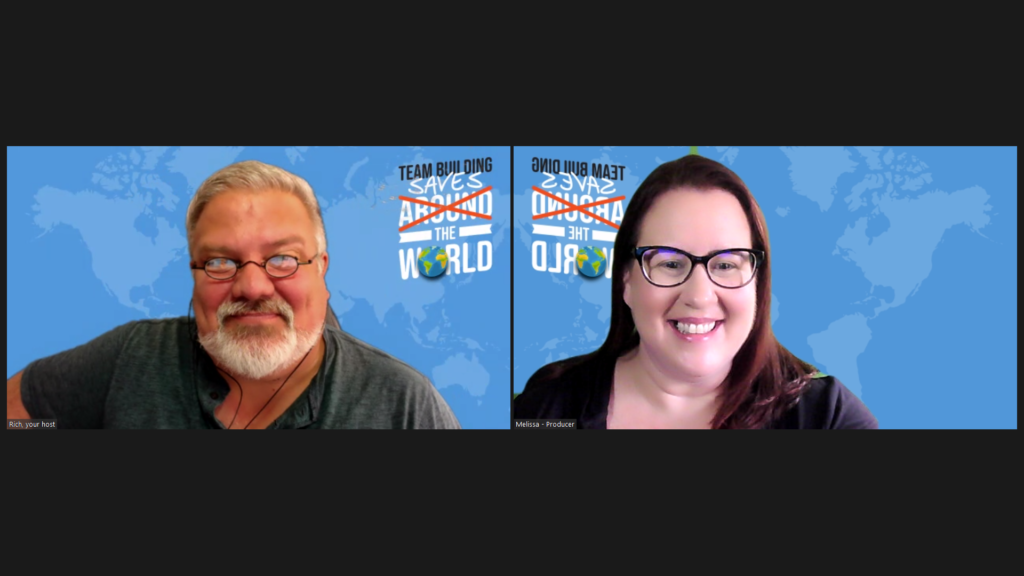
More great podcast episodes.
Season 6 | Episode 18
That’s a Wrap!
Season 6 | Episode 17
Work-Life Integration
Season 6 | Episode 16
Laughing it Off
Season 6 | Episode 15
Corporate Volunteerism in Action
Season 6 | Episode 14
Collaborative Play at Work
Season 6 | Episode 13
The Science of Supportive Workplaces
Season 6 | Episode 12
The Power of Being Present
Season 6 | Episode 11
The Age Advantage
